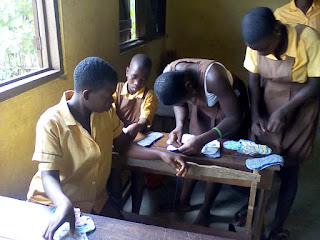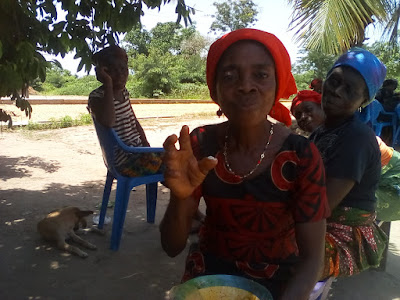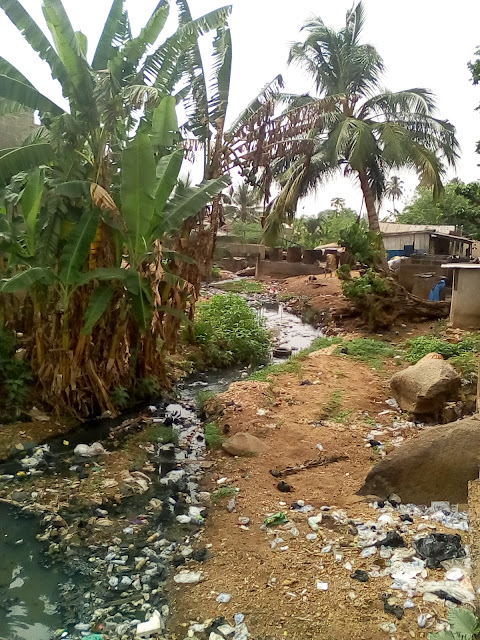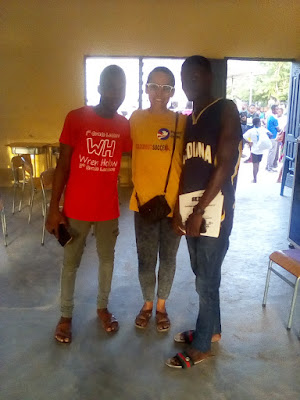Out for a walk

Yesterday evening I went for a walk. The village where I live is situated on a rocky red road. When I first arrived here, it was mostly sand and mud, but the government was planning to pave it, so there were crews out every day getting ready to do just that. The first step, apparently, was to cover the road with large quantities of stone about the size of my fist. After they did that, a new government came to power and canceled the road project. So now the road is extremely bumpy and uncomfortable, but at least it doesn’t flood nearly as much. Upgrade? I left my house around the time people here switch from saying “good afternoon” to “good evening.” It was a little after four, but I could still see heat sizzling off the ground. Still, by far the most comfortable time of day for me to be out and active. As I left home and walked away from the community, three different people called after me. “Where are you going? What will you bring me? Don’t forget to buy me bread...





